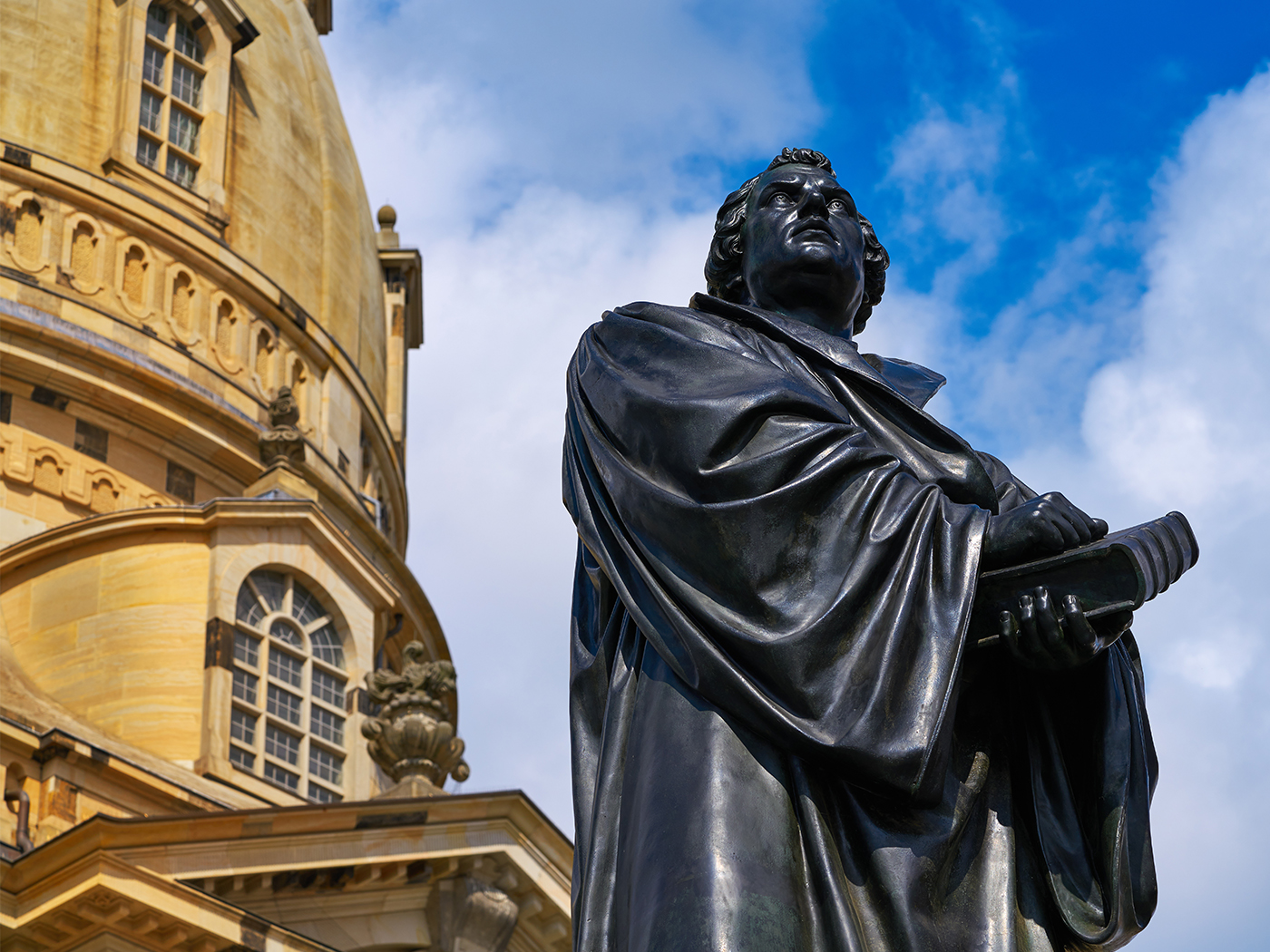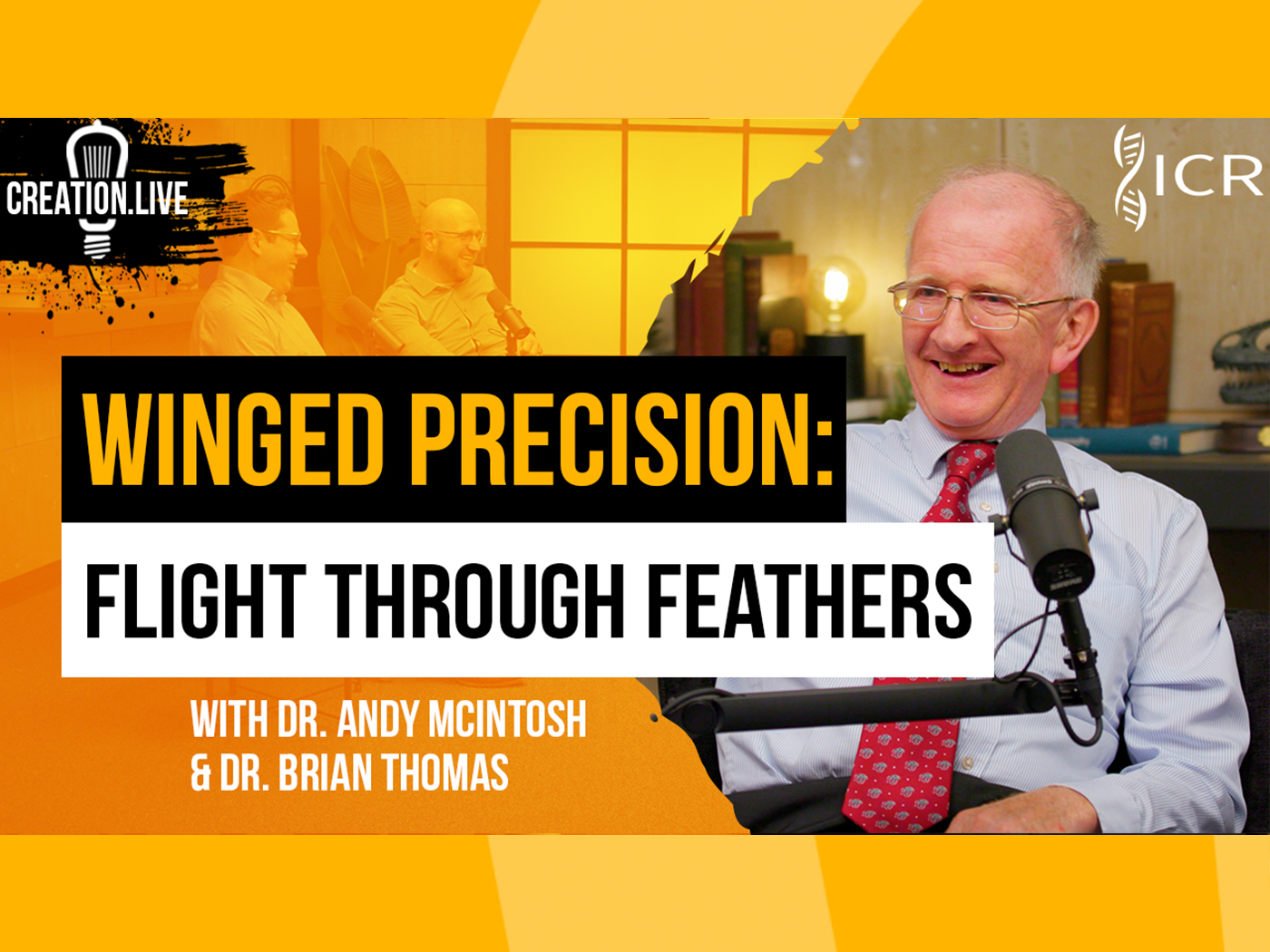
An often-overlooked testimony to the fact of creation is the strange phenomenon of the seven-day week. Almost universally observed in the present world and often observed in the ancient world, it is so deeply rooted in human experience and so natural physiologically that we seldom think about its intrinsic significance.
All the other important time markers in human life are clearly based on astronomical and terrestrial constants. The day, for example, is the duration of one rotation of the earth on its axis; the year is the duration of one orbital revolution of the earth about the sun; the month is the approximate interval between new moons; the seasons are marked by the equinoxes and solstices.
But the week has no astronomical basis whatever! Yet we order our lives in a seven-day cycle, doing certain things on Monday, certain other things on Tuesday, and so on through the week. Furthermore, the common pattern is one of six normal working days, then a day of rest or change, then six normal days again, and so on, with the special day regarded as either the last of the seven preceding it, or the first of the seven following it.
How could such a system ever have originated? Most encyclopedias and reference books treat the subject very superficially, if at all. One can easily find extensive discussions about the length of the year and the length of the month in different eras and cultures, but it is very difficult to locate information about the week. Most of the discussions that do try to deal with it attribute the origin of the week to the use of "market days," pointing out also that the interval between market days was different in different nations, though rarely varying more than a day or so above or below seven days. With the exception of an occasional Biblical scholar, almost none of these writers even considers the obvious explanation—namely, that the seven-day week was established by God Himself, at the beginning!
Every effect must have an adequate cause, and the only cause which is truly able to account for such a remarkable phenomenon as the week is that it was established at creation and has been deeply etched in the common human consciousness ever since. Even if the week is noted in some cultures in terms of regular market days, this still does not explain how the market days happened to cluster around every "seventh" day, instead of every fifteenth day or nineteenth day or something else. Besides, there were various ancient nations whose weeks were quite unrelated to any marketing customs.
A related phenomenon, equally remarkable, is the almost universal significance attached to the number "seven," as a number speaking of completeness, usually with special religious overtones. This number is not "natural" in any physical way. It would be more natural to use the number "ten" (the number of a man's fingers), or the number "twelve" (the number of months in the year), or perhaps the number "365," to represent fullness. Why "seven"? Yet "seven" is everywhere the number of completeness.
Many people believe that the custom of a weekly day of rest began with Moses, when he incorporated Sabbath observance into the Ten Commandments. However, there is considerable evidence that Sabbath observance existed in both Israel and in other nations long before Moses. The Word of God makes it plain that it was established by God Himself, in commemoration of His completed creation, and that it has been observed as a special day, at least by some, ever since. Here is the record:
Thus the heavens and the earth were finished, and all the host of them, and on the seventh day God ended His work which He had made; and He rested on the seventh day from all His work which He had made. And God blessed the seventh day, and sanctified it: because that in it He had rested from all His work which God created and made (Genesis 2:1-3).
God "rested" after finishing His work of creating and making all things in the universe in the six days just completed. His rest was not because of fatigue (note Isaiah 40:28), but was simply a cessation of His creative activity.
And then God blessed and sanctified the seventh day! He declared it to be a holy day, a day peculiarly the Lord's Day. The six days had been occupied with His creation; one day should be occupied with the Creator. He frequently referred later to the day as "my Sabbaths" (e.g., Exodus 31:13).
That the children of Adam, even after the expulsion from Eden, continued to regard every seventh day as a day of rest and worship is clearly implied in the story of Cain and Abel.
And in process of time it came to pass, that Cain brought of the fruit of the ground an offering unto the Lord. And Abel, he also brought of the firstlings of his flock and of the fat thereof (Genesis 4:3, 4).
On this particular day, Cain was not tilling the ground, as he normally did, nor was Abel tending his sheep. On this day, they met with the Lord and brought Him all offering.
And what day was that? The phrase "in process of time" is, literally, "at the end of the days" ("process" = Hebrew qets = "end"; "time" = Hebrew yamim = "days"). The day on which they brought their offerings was the day "at the end of the days," and this clearly can be nothing but the seventh day, the day which God had blessed and hallowed.
The story of Noah contains many allusions to the seven-day week. Note the following in Chapters 7 and 8 of Genesis:
- "For yet seven days, and I will cause it to rain upon the earth" (7:4)
- "And it came to pass after seven days that the waters of the flood were upon the earth" (7:10)
- Forty weeks later (280 days—compare 7:11; 8:3, 4, 5, 6) Noah sent forth the dove and the raven (8:7, 8)
- "And he stayed yet other seven days; and again he sent forth the dove" (8:10)
- "And he stayed yet other seven days; and sent forth the dove " (8:12)
- Noah and his family left the ark exactly 371 days, or 53 weeks, after they had entered it (compare verses 7:11; 8:3, 4; 8:14).
Whether these repeated references to actions taken every seven days imply that they all took place on God's rest day is not stated, although it does seem probable. In any case, it is clear that both God and Noah were ordering events in terms of a seven-day cycle.
During the centuries from Noah to Moses, there was little occasion to refer in the Bible to the week as such. However, there do at least seem to be two allusions to it, in the story of Jacob and Leah ("fulfill her week"—Genesis 29:27, 28) and in the story of Jacob's burial (Genesis 50:10).
Whatever form of Sabbath observance might have been practiced by the early patriarchs, it is probable that the long servitude in Egypt caused many to forget its religious significance, even though the weekly cycle was still followed. When the time came for God to redeem His people, however, He began to remind them of its importance. In preparation for the great Passover deliverance, He commanded: "Seven days shall ye eat unleavened bread,—And in the first day there shall be an holy convocation, and in the seventh day there shall be an holy convocation to you; no manner of work shall be done in them, save that which every man must eat, that only may be done of you." (Exodus 13:15, 16). It is interesting that, in this preparation for the incorporation of the Sabbath into the Ten Commandments, both the First Day and the Seventh Day were days of rest and worship!
Soon after this, the Israelites were strongly reminded that a seventh day each week was intended to be a day of rest, in the experience of the manna (Exodus 16:4, 5, 25-30), which fell for six days each week and was withheld by God on the seventh. Finally, Sabbath observance was incorporated as the fourth in the array of Ten Commandments recorded for Israel by the very finger of God on tables of stone (Exodus 31:18).
Remember the Sabbath Day to keep it holy. Six days shalt thou labour, and do all thy work: But the seventh day is the Sabbath of the Lord thy God: in it thou shalt not do any work,—(Exodus 20:8-10).
It should be stressed again that the Sabbath observance was by no means established here for the first time. The Israelites, however, were now commanded to remember the Sabbath and to keep it holy, as it should have been since God so pronounced it following the creation. The Lord's holy day may have been neglected by God's chosen people, or even forgotten altogether by most other nations, but it was still God's primeval commandment. At this time, God stressed again that the basis for the commandment was not regional but universal, relating to the entire creation. "For in six days the Lord made heaven and earth, the sea, and all that in them is, and rested the seventh day: wherefore the Lord blessed the Sabbath Day, and hallowed it." (Exodus 20:11). A commandment intended for all people should certainly be obeyed by the chosen people!
With the passing of the centuries, the Sabbath eventually became almost exclusively associated with the religious ceremonies of the nation Israel, even though the Creator had hallowed it originally for all men. When that Creator eventually became man, however, in the person of Jesus Christ, He stressed that it had never been intended as a mere Jewish religious ritual, as the Pharisees had distorted it, but for the good of all men. "The Sabbath was made for man, and not man for the Sabbath" (Mark 2:27). All men needed to have a day of rest and worship, for their own physical good, and to regularly remind themselves of the great truth of creation, for their spiritual good. And they needed to remember continually that the one who came in to redeem them is also the one who had created them. "Therefore, the Son of man is Lord also of the Sabbath," He said (Matthew 12:28).
It was appropriate, therefore, that after Christ's death and resurrection, Christians from every nation soon began once again to observe one day in every seven as a day of rest, as they heard and believed the gospel of Christ. Now, however, there were two great works of God to commemorate, the completion of creation and the completion of redemption. As Christ had long ago finished the work of creation (Colossians 1:16) so He could now report once again to the Father: "I have finished the work which thou gavest me to do" (John 17:4). This work was climaxed with the great victory cry on the cross: "It is finished!" (John 19:30).
For a time, Jewish Christians continued to participate both in the synagogue services on the seventh day each week (e.g., Acts 17:2) and also in Christian services on the first day of the week (Acts 20:7). Eventually, as they were more and more excluded from the synagogue, they observed the Lord's day only on the first day of the week (I Corinthians 16:2), thereby honoring Christ simultaneously as both Creator and resurrected Savior.
There was discussion for a long time (continuing in some degree even today) as to whether Christian churches, once they were completely separated from the Jewish assemblies, should observe the Lord's day on the seventh day of the week, as the Jews did, or on the first day of the week, as the day of Christ's resurrection. Without entering into this particular discussion, the important point to note here is the fact that Christians never even questioned the necessity for a weekly "rest day" on which especially to honor the Lord. That need was taken for granted, regardless of whether the "Sabbath" was to be observed on Saturday or Sunday. ("Sabbath," in Hebrew means neither Saturday nor Sunday, neither seventh day nor first day, but rest day!).
In view of the chaotic state of ancient chronology, there is obviously no way of knowing which day of the modern week is an exact multiple of seven days since God's first rest day. Those Christians who worship on Saturday believe that the Sabbath cycle has been kept intact ever since the creation and so they follow the practice of today's orthodox Jews, who make the same assumption. Other Christians, however, point out that the present Jewish calendar was not established until the fourth century A.D., so there is neither historical nor scientific basis for insisting that our present Saturday was the primeval Sabbath. Some Christian writers have argued that our modern Sunday was the ancient Sabbath and others have maintained that the day of the week on which the Sabbath fell actually changed from year to year, being affected by Sabbaths other than the weekly Sabbath, including one which extended for two days each year. The "long day" of Joshua (Joshua 10:13, 14) also must have affected the weekly cycle in some as yet uncertain fashion. In any case, the important consideration is the fact of a weekly "Lord's Day," rather than the particular day of the modern weekly cycle on which it is observed.
It is significant that the Ten Commandments, representing God's ineffable and unchanging holiness as they do, even though specifically written down in the Mosaic law for Israel's sake, are also written in the consciences of all men (Romans 2:14, 15). Consequently, these commandments were accepted and applied in the New Testament as well (e.g., Romans 13:9; Ephesians 6:2; etc.).
This affirmation is clearly implied for the Sabbath commandment in particular. "For He spake in a certain place of the seventh day on this wise; and God did rest the seventh day from all His works.—There remaineth therefore a rest to the people of God." (Hebrews 4:4, 9). In this passage in Hebrews (verses 1-11), the English word "rest" occurs nine times. All except one of these are translations of essentially the same Greek word (katapausis), implying rest from labor. The exception is in verse 9: "There is yet reserved therefore a Sabbath rest (Greek sabbatismos, derived from sabbaton, "Sabbath") to the people of God." This is the only occurrence of this particular word in the New Testament.
In context, the writer is showing that the ultimate "rest" for God's people, which was typically portrayed by God's rest after creation and which was therefore typified by every weekly Sabbath observance, was not attained in Canaan under either Joshua or David, and was still reserved for the future even after Christ had returned to heaven and the Christian era had begun. Since the antitype is yet future, therefore, the type must still be in operation, just as the animal sacrifices in the temple did not cease until Christ "had offered one sacrifice for sins for ever." (Hebrews 10:12). This fact, combined with the evident fact that all the early Christians continued to observe a weekly "Lord's day," and that nowhere in the New Testament was it stated that "Sabbath" observance should cease, makes it clear that this commandment, like all the Ten Commandments, applies in the Christian dispensation as well as in the Mosaic dispensation, though not with the same applications and penalties that related specifically to the Mosaic ordinances. As a matter of fact, God's people will continue to observe a weekly Sabbath even in the coming kingdom age (note Isaiah 66:22, Ezekiel 46:3).
All of this is the tremendous testimony of the seven-day week and, especially, of the day of rest which marks its boundaries. Its very existence can only be explained by the reality of a primeval six-day completed creation! God desires that we never forget that He is both our Creator and Redeemer, and also that we continually look forward to the eventual fulfillment of all His creative and redemptive purposes, when they are finally consummated in that eternal Rest for all the people of God in the ages to come.























